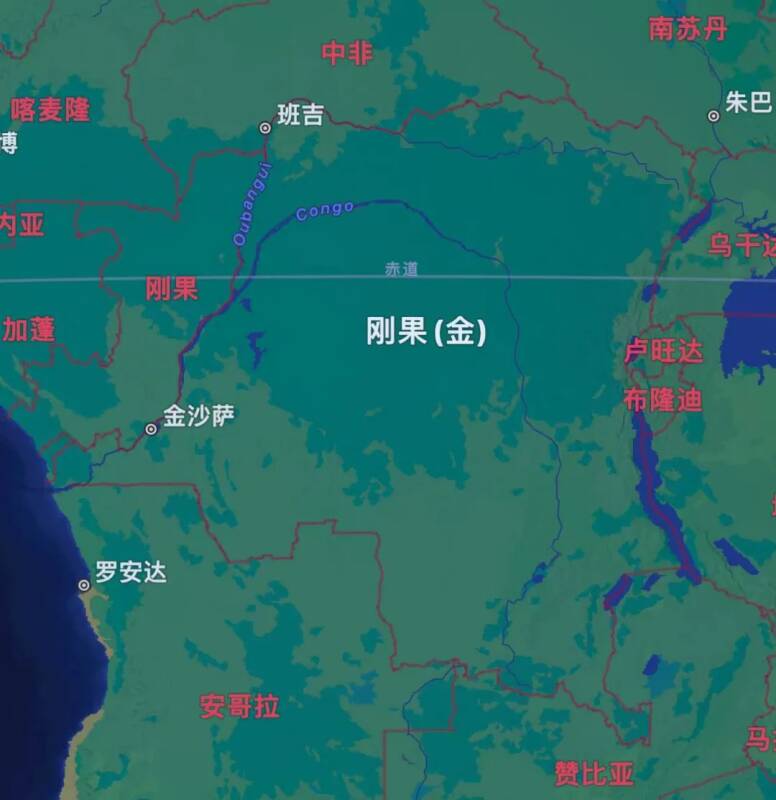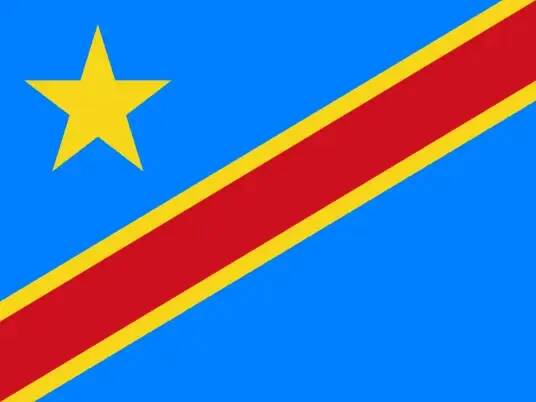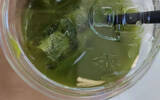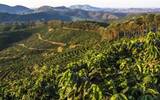Introduction of varieties in the Congo (DRC) coffee producing area in central African countries
African coffee is well known in the global coffee market, because there are many coffee producing countries in Africa, and the African country Ethiopia is recognized as the birthplace. There are also many coffee-producing countries to be reckoned with, such as Congo (Kinshasa), the birthplace of the Robusta variety.
Congo (Democratic Republic of) Congo
Democratic Republic of the Congo (The Democratic Republic of the Congo), also known as the Democratic Republic of the Congo (DRC). Located in central Africa, it is bordered by Uganda, Rwanda, Burundi, Tanzania, South Sudan, Congo (Brazzaville), Central Africa, Zambia and Angola, with a land area of 2344885 square kilometers.

The national flag of the Democratic Republic of the Congo (DRC) was changed on February 18, 2006. the new flag was in the style of the national flag of the period from 1966 to 1971, but the background color was changed from dark blue to light blue, with a yellow-red belt in the middle drawing the flag from the lower left corner to the upper right corner. There is a yellow five-pointed star in the upper left corner of the flag, which represents a bright future, light blue symbolizes peace, yellow represents rich resources, and red represents the blood of those who died for their country.

The topography of the Congo (DRC) is mainly divided into five parts: the central Congo basin, the Great Rift Valley in the eastern South African Plateau, the Azander Plateau in the north, the Lower Guinea Plateau in the west, and the Ronda-Katanga Plateau in the south. It is rich in natural resources, rich in many high mountains, rivers, lakes and forests.
The equator runs through the north of the Democratic Republic of the Congo, and the rainy and dry seasons alternate between the north and the south of the equator. for example, during the rainy season in the north, the dry season is in the south, and vice versa. The climate is diverse all over the country, with a tropical rain forest climate in the north and a savanna climate in the south, with an annual average temperature of 27 ℃. The central basin is hot and humid, the eastern part is high, and the climate is pleasant. The annual average temperature in North and South Kivu is 19 ℃, which leads to the development of agriculture and animal husbandry. The country has many rivers and lakes, abundant rainfall and the famous Mount Nyiragongo in Africa, which gives ideal conditions for growing crops such as coffee.
Coffee producing area
Coffee cultivation is mainly concentrated in the Kivu region in the eastern part of the Democratic Republic of the Congo, which is the border between the Democratic Republic of the Congo and Burundi and Rwanda. The main boutique coffee producing areas are Sud-Kivu (South Kivu), Nord-Kivu (North Kivu) and Iturri (Ituri).
The country mainly grows Robusta and Arabica. Robusta accounts for 80% of the country's coffee production, but most of the Arabica varieties are exported, mainly bourbon and iron pickup. Similar to other African countries, coffee cultivation in this country is dominated by small farmers and cooperatives.
Sud-Kivu (South Kivu): this producing area and Nord-Kivu (North Kivu) get their name around Lake Kivu. Coffee is grown between 1460 and 2000 meters, mainly with bourbon varieties.
Nord-Kivu (North Kivu): North Kivu is one of the most productive areas in the country, with a number of sub-producing areas, and coffee is grown in areas between 1200 and 2200 meters above sea level, where Arabica varieties and Robusta varieties are grown.
Iturri (Ituri): located in the northeast of the Democratic Republic of the Congo, bordering Uganda and Lake Albert, with many mountains and valleys, its fertile clay sandy soil is suitable for growing quality coffee, which is grown in an area of 1600-1900 meters.
Important Notice :
前街咖啡 FrontStreet Coffee has moved to new addredd:
FrontStreet Coffee Address: 315,Donghua East Road,GuangZhou
Tel:020 38364473
- Prev

The barista is in a dilemma! Ice or get a ticket?
▲ Click to pay attention| Daily boutique coffee culture magazine coffee workshop The weather is getting hotter, and iced drinks have gradually become the mainstream of sales in major beverage stores. However, not every customer can accept the "heart-piercing coolness" brought by iced drinks. Therefore, in summer, Whether the iced drinks can be removed from the ice has become the most important point for consumers. Recently,
- Next

An increase of 53% over the same period! Brazil's coffee exports remain strong in April
Recently, the Brazilian Coffee Exporters Chamber of Commerce Cecafe announced Brazil's export status in April. In April this year, Brazil exported 4.222 million bags of 60 kilograms of coffee, a strong performance, setting a record for this month. Exports increased by 53.3% compared with the same period last year, exceeding the performance in April 2021. In addition, by
Related
- What grade does Jamaica Blue Mountain No. 1 coffee belong to and how to drink it better? What is the highest grade of Blue Mountain coffee for coffee aristocrats?
- What are the flavor characteristics of the world-famous coffee Blue Mountain No. 1 Golden Mantelin? What are the characteristics of deep-roasted bitter coffee?
- Can I make coffee a second time in an Italian hand-brewed mocha pot? Why can't coffee be brewed several times like tea leaves?
- Hand-brewed coffee flows with a knife and a tornado. How to brew it? What is the proportion of grinding water and water temperature divided into?
- What is the difference between Indonesian Sumatra Mantinin coffee and gold Mantinin? How to distinguish between real and fake golden Mantelin coffee?
- What does bypass mean in coffee? Why can hand-brewed coffee and water make it better?
- Unexpected! Ruixing Telunsu lattes use a smoothie machine to foam milk?!
- % Arabia's first store in Henan opens into the village?! Netizen: Thought it was P's
- Does an authentic standard mocha coffee recipe use chocolate sauce or powder? Mocha Latte/Dirty Coffee/Salty Mocha Coffee Recipe Share!
- What is the difference between Vietnam egg coffee and Norway egg coffee? Hand-brewed single product coffee filter paper filter cloth filter flat solution!

